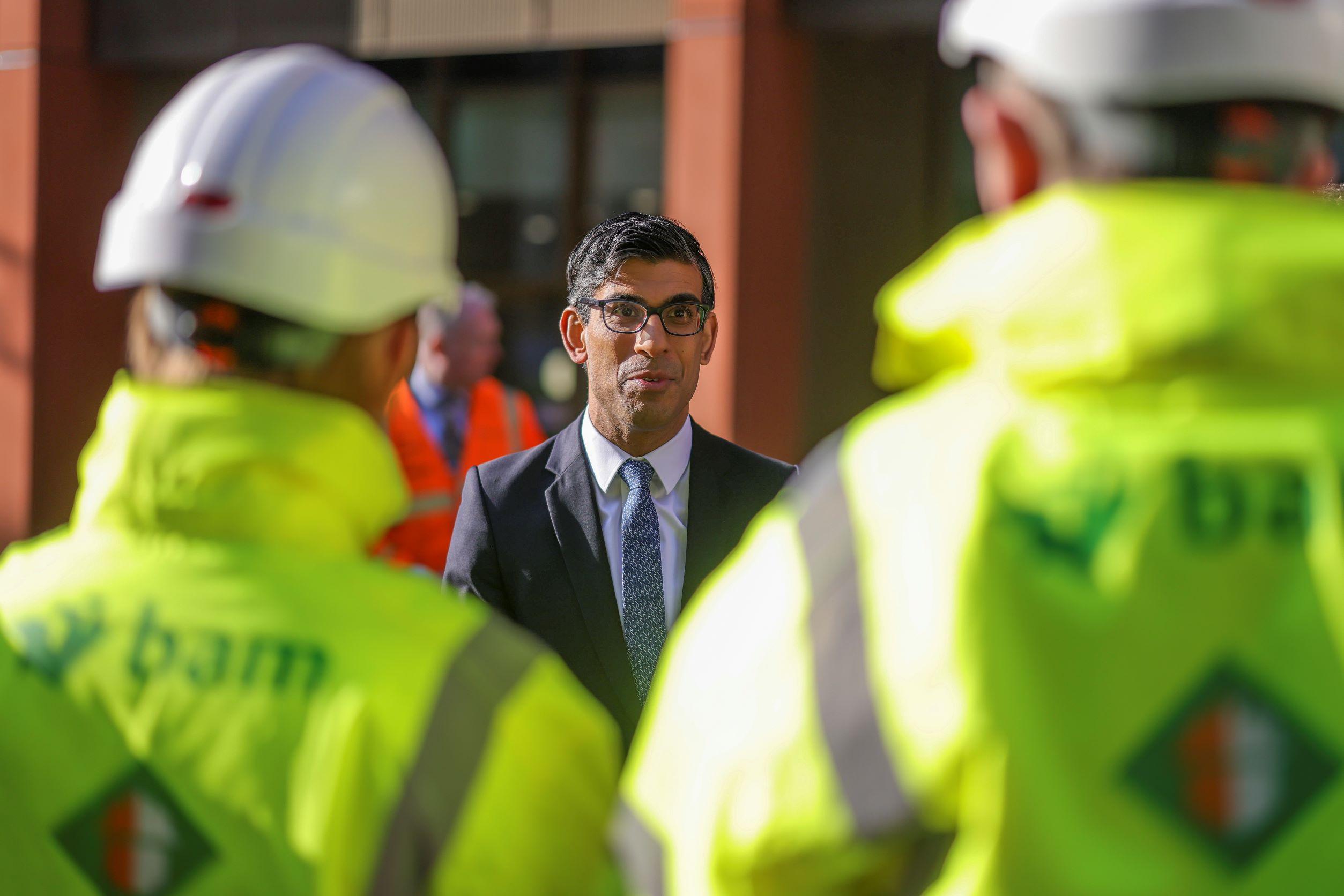A consensus is now emerging in Westminster on the need to empower England’s cities and regions to “level up” certain parts of the country. Yet the prevailing understanding of accountability in this process neglects the voices of local people and fails to provide sufficient space and autonomy for local leaders, argue Jack Newman, Dave Richards, Andy Westwood, and Patrick Diamond.
Trailblazer devolution deals for Greater Manchester and the West Midlands represent a significant step towards meaningful devolution in England. This empowerment of England’s cities and regions is tied to concerns about the UK’s sluggish and uneven productivity growth, reflecting a growing academic consensus that the shape of the country’s governing institutions is a key factor in its long-term economic prosperity. While many other countries showcase potential payoffs of decentralised decision-making, the big challenge for the UK, and England specifically, is what reforms are needed to realise decentralisation.
We argue that more localised accountability, especially through greater public knowledge and participation, can lead to meaningful decentralisation.
Traditionally, the UK Constitution has supported a framework of upward accountability, where local leaders are answerable to Whitehall and Westminster, as parliament is the “supreme legal authority”. The challenge faced in bringing about effective decentralised decision-making is determining who is held accountable and how. Local politicians, such as elected mayors, have their own democratic legitimacy, but the political centre still retains significant control.
The challenge faced in bringing about effective decentralised decision-making is determining who is held accountable and how.
To realise decentralisation, a shift in attitude at the centre is required to ensure local government is protected. This must be supported by public engagement and a method of accountability that gives local leaders an official say at the political centre.
How does accountability work?
There are three options when addressing accountability. Upward accountability means local leaders are answerable to Whitehall and Westminster; inward accountability means local leaders are answerable to other parts of their institutions; and downward accountability means they are answerable to local people. With the government’s new trailblazer deals and the new English Devolution Accountability Framework, the government seeks to make use of all three of these mechanisms. However, in both the deals and the framework, there are assumptions about the primacy of upward accountability, and a notable lack of attention to improving downward accountability. This creates a major barrier to decentralisation.
The historical logic behind the UK’s upward model of accountability is embedded in its constitutional principles, where the core idea of parliamentary sovereignty treats the UK Parliament as the “supreme legal authority in the UK”. The Ministerial Code states that “Ministers have a duty to parliament to account, and be held to account, for the policies, decisions and actions of their departments and agencies”. As such, local and combined authorities are often treated as delivery agencies of government departments, with local policymakers accountable to ministers through various reporting mechanisms, limitations on their spending and powers, alongside a regime of inspection, audit and target-setting.
Overcoming power struggles
This traditional accountability model stands in tension with the fact that local politicians also have democratic legitimacy. The creation of metro mayors “was supposed to ensure that the buck stopped with local leaders, not remote bureaucrats in Whitehall”. Yet a key bulwark against such reforms has been the Treasury, where officials have found it “psychologically tricky” to accept the benefits of limiting the command-and-control approach to public finances. Devolution has been accompanied by significant limitations on local spending, such as the application of Treasury cost-benefit analyses, the strings attached to one-off grants, or restricting local leaders in moving funds from one policy area to another.
The new trailblazer devolution deals give both Greater Manchester and the West Midlands a single multi-year block budget as part of Whitehall’s three-year spending review process. Giving local leaders greater control over their budgets unlocks the potential for cross-sector policymaking, as funding streams are no longer constrained by Whitehall policy silos. This in turn allows local leaders to develop longer-term economic strategy based on local knowledge and specialisms. However, while these budgetary freedoms remove one set of Whitehall controls over the city regions, they are accompanied by the development of a new accountability regime in the text of the trailblazer deals and in a new “English Devolution Accountability Framework”.
While these budgetary freedoms remove one set of Whitehall controls over the city regions, they are accompanied by the development of a new accountability regime in the text of the trailblazer deals…
Primarily, this is underpinned by new mechanisms of “upward accountability”, with local leaders more heavily scrutinised by Whitehall and Westminster. The “overarching single accountability process” outlined in the trailblazer deals will include an assurance framework coordinated by The Department of Levelling Up, Housing and Communities (DLUHC), an outcomes framework, spending control processes, an approach to managing financial risks, a single reporting framework, and a greater role for the new Office for Local Government. There will also be accountability to parliament through existing select committees, and through new dedicated committees of local MPs, who will conduct public scrutiny sessions four times a year. It is explicitly stated that these are one-way scrutiny arrangements, and therefore do not allow Mayoral Combined Authorities (MCAs) to scrutinise parliament or the government.
Strengthening the local public debate
Where the trailblazer deals are more progressive is in terms of the “inward accountability” of MCAs. There are reforms to empower Overview and Scrutiny Committees within MCAs, particularly by ensuring that they are well funded, independent, politically representative, and properly attended by members and by MCA leadership. However, these scrutiny committees will also have stronger links to central government, empowering them to report to ministers on local problems or failings, reinforcing upward accountability.
Where the new accountability regime is weakest is in relation to downward accountability, despite government claims that it is of greatest importance. The new proposals seek to improve public information on local government with explainers on council tax bills and government websites. There is also a proposal to roll out town-hall style “mayors question times”. And yet, what is notably absent is any well-funded, strategic, or proactive plan to engage local people or stimulate local political debate. There is a nod to the importance of local media but no proposed action. This coincides with a worrying decline in local media, with major cuts and declining quality in the private sector, and BBC cutbacks of its already threadbare local news offering. Similarly lacking is any attempt to reconsider the design of democratic processes or institutions to make them more responsive to local opinion. The moves towards first-past-the-post systems in mayoral elections is a token gesture that is actually likely to weaken the public voice.
How to remedy England’s top-down accountability structure
Our first suggestion is to strengthen local democracy. England experiences significantly lower turnout in local elections than comparable countries. The remedies are not simple but a starting point would be to engage the public in a debate about devolution, invest heavily in the next generation of local media and deliver major public engagement campaigns. There is also a strong case for considering reforms to the voting system in England’s local authorities. And, rather than trying to explain the Byzantine complexities of local government arrangements, there needs to be a concerted effort to simplify those arrangements, so that it is clear who is accountable for outcomes. It is not enough to be “comfortable with messiness” in governance arrangements, because incoherence has consequences.
Secondly, devolved leaders should be given an official voice in Westminster. This could be done through the establishment of new committees which are formed by national and local politicians. This would allow elected mayors, local authority leaders and councillors to hold the centre to account, as well as the reverse.
Finally, there needs to be a shift in attitude at the centre to allow for the proper representation and protection of local government. Combined and local authorities should have the right to be consulted by central government on reforms to local government structures and reforms to policy areas within their remit. This should be accompanied by regular access to ministers regardless of party affiliation. For too long, the principles of parliamentary sovereignty and ministerial responsibility have acted as a centripetal force dragging all things back to ministers and their departments.
All articles posted on this blog give the views of the author(s), and not the position of LSE British Politics and Policy, nor of the London School of Economics and Political Science.
Image credit: Photo by Mylo Kaye via Pexels.






